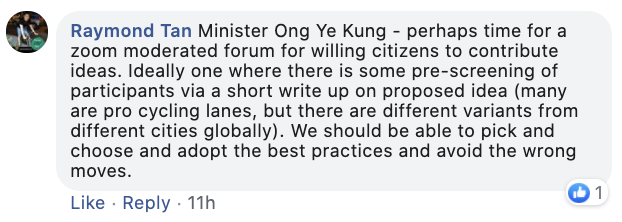Singapore – “Covid-19 has changed the way we travel, and it is uncertain how travel patterns will evolve in the coming months,” said Transport Minister Ong Ye King in social media on Thursday (August 13). He had asked the Land Transport Authority (LTA) to take more time to monitor and fully assess the impact of the virus on travel patterns.
Mr Ong, through a Facebook post, mentioned how Singapore adopted vehicle control policies “way before environment and green development” became a major priority for cities. Vehicle population controls and congestion pricing were implemented because “this little island is all we have, and we need to preserve it even as we develop,” said Mr Ong, noting that some of Singapore’s transport polices were ahead of their time as they are being prioritised by other countries today.
However, the emergence of the Covid-19 pandemic has changed the way we travel, said Mr Ong. More members of the public now work from home, participate in online learning or generally stay at home more often. There has also been an increase in healthier modes of transportation such as cycling, said the minister.
“It is uncertain how travel patterns will evolve in the coming months,” said Mr Ong. “But we should take the opportunity to reduce unnecessary trips, stagger working hours, and develop a more sustainable land transport system for Singaporeans – one that is greener, smarter and more inclusive in meeting the diverse needs of commuters.”
Although the LTA had planned to review the Vehicle Growth Rate (VGR) this year with changes to take effect from February 2021, Mr Ong had asked the statutory board to take more time to monitor and assess the situation given the uncertainties brought about by Covid-19 on travel patterns. “So LTA will review the VGR in 2021, to take effect from February 2022,” Mr Ong confirmed.
In the meantime, the current VGR, which has been in effect since February 2018, will remain at zero per cent per annum for COE (Certificate of Entitlement) Categories A, B and D (all private passenger cars and motorcycles) and at 0.25 per cent per annum for Category C (goods vehicles and buses).
LTA noted the extension of such rates would not have any impact on the supply of COEs as its quota is determined mostly by the number of vehicle de-registrations, as reported by channelnewsasia.com.
“I hope this also provides some stability and assurance for vehicle owners, businesses, and dealers in the months ahead,” said Mr Ong.
In response to his post, especially the mention of cycling, members of the public hoped that more priority could be placed on bicycle paths, using countries like Denmark and Japan.










“Perhaps it’s time for a zoom-moderated forum for willing citizens to contribute ideas,” suggested Facebook user Raymond Tan. The initiative would highlight different ideas such as pro-cycling lanes but designed to fit Singapore’s landscape, he added. “We should be able to pick and choose and adopt the best practices and avoid the wrong moves.”


https://www.facebook.com/ongyekung/posts/3716998544981387
Read related:
Caught on cam: Bus captain advises passenger to wear mask, passenger replies ‘It’s my life’

